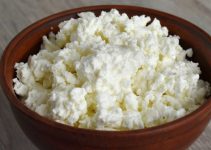Sugar alcohols look and taste like sugar but have fewer calories.
In addition, they could be beneficial to your health
This article will show you information about sugar alcohol and its health effects.
What Are Sugar Alcohols?
Sugar alcohols are a category of sweet carbohydrates that act as dietary fiber.
They are hybrids of sugar molecules and alcohol molecules.
Although they have alcohol molecules, they do not contain ethanol, that is, the compound that makes you drunk. That is why they are safe for people who do not drink alcohol.
While they can be found in certain fruits and vegetables, they are generally processed from other sugars such as glucose in cornstarch.
Because they have a chemical structure similar to sugar, sugar alcohols activate sweet taste receptors on the tongue.
Common Types of Sugar Alcohols
Different sugar alcohols differ in taste, health impact, and calorie count.
They are generally used as sweeteners.
1. Xylitol
The most common is xylitol, which is as sweet as sugar but has 40% fewer calories.
Although it does not usually cause adverse effects, if it is consumed in excess, it can cause digestive problems.
2. Erythritol
Erythritol is produced by fermenting glucose in the cornstarch.
It has 70% of the sweetness of sugar but 5% fewer calories.
As it does not reach the large intestine in large quantities, it does not cause digestive problems like the rest of the sugar alcohols.
It is absorbed by blood flow and excreted through urine.
3. Sorbitol
Sorbitol is 60% sweet like sugar but has 60% fewer calories.
While it doesn’t impact blood sugar levels, it can cause digestive system problems.
4. Maltitol
Maltitol is obtained by processing the sugar from maltose.
It has 90% of the sweetness of sugar but half of the calories.
However, maltitol can cause spikes in blood sugar, so it is not recommended for people with diabetes.
Other Sugar Alcohols
Other sugar alcohols are mannitol, lactitol, isomalt, and hydrogenated starch hydrolysates.
Glycemic Index and Blood Sugar Impact
The glycemic index (GI) measures how quickly foods increase blood sugar levels.
Foods high in GI are associated with metabolic problems and obesity.
In principle, most sugar alcohols have a particular effect on blood sugar levels. The only ones that do not increase the glycemic index are erythritol and mannitol.
Maltitol, however, has a glycemic number of 36. This number is still low compared to regular sugars.
Sugar Alcohols Can Improve Dental Health
Regular sugar can cause teeth to fall out as they feed the bacteria that lodge in the mouth.
However, sugar alcohols (erythritol, xylitol, and sorbitol) protect against tooth loss.
Studies have confirmed that xylitol has positive effects on dental health.
In fact, bacteria in the mouth feed on this sugar alcohol but cannot metabolize it.
On the other hand, a study on children found that erythritol was better at preventing dental cavities than xylitol and sorbitol.
Other Benefits
These are other benefits of sugar alcohol:
- Skin Health: According to studies in rodents, xylitol can increase the production of collagen, the structural protein of the skin.
- Prebiotic: sugar alcohols have a prebiotic effect, so they feed the healthy bacteria in the intestine.
- Bone Health: Studies in rats found that xylitol can increase bone volume and mineral content, preventing osteoporosis.
Digestive Problems
Despite its benefits, excessive consumption of sugar alcohols can cause digestive problems.
In general, the body cannot digest them, and they travel to the large intestine, where bacteria metabolize them.
This can lead to symptoms such as gas, diarrhea, or bloating.
Also, they are not recommended for people with irritable bowel syndrome.
Erythritol and xylitol are less harmful to digestive health than sorbitol and maltitol.
Xylitol Is Toxic to Dogs
Of note, while humans tolerate xylitol well, it is not suitable for dogs.
This is because your body mistakes it for sugar and begins to produce large amounts of insulin, which can cause hypoglycemia.
Which Sugar Alcohol Is The Healthiest?
When comparing all sugar alcohols, erythritol could be one of the best options.
This is so because it has almost no calories, doesn’t effects blood sugar levels, and almost does not affect the digestive system.
In addition, it is good for the health of the teeth, and it tastes great.
Finally, it does not harm dogs.
The Bottom Line
Sugar alcohols have become very popular lately as low calorie-sweeteners.
It is noteworthy that these are not artificial sweeteners but hybrids between water molecules and alcohol molecules.
In general, except maltitol, sugar alcohols are partially resistant to digestion.
Although they are usually well-tolerated, excessive consumption (mainly sorbitol) can cause symptoms such as bloating and diarrhea.
Erythritol might be the best option as it has the least number of adverse effects and does not affect you if you have irritable bowel syndrome.





